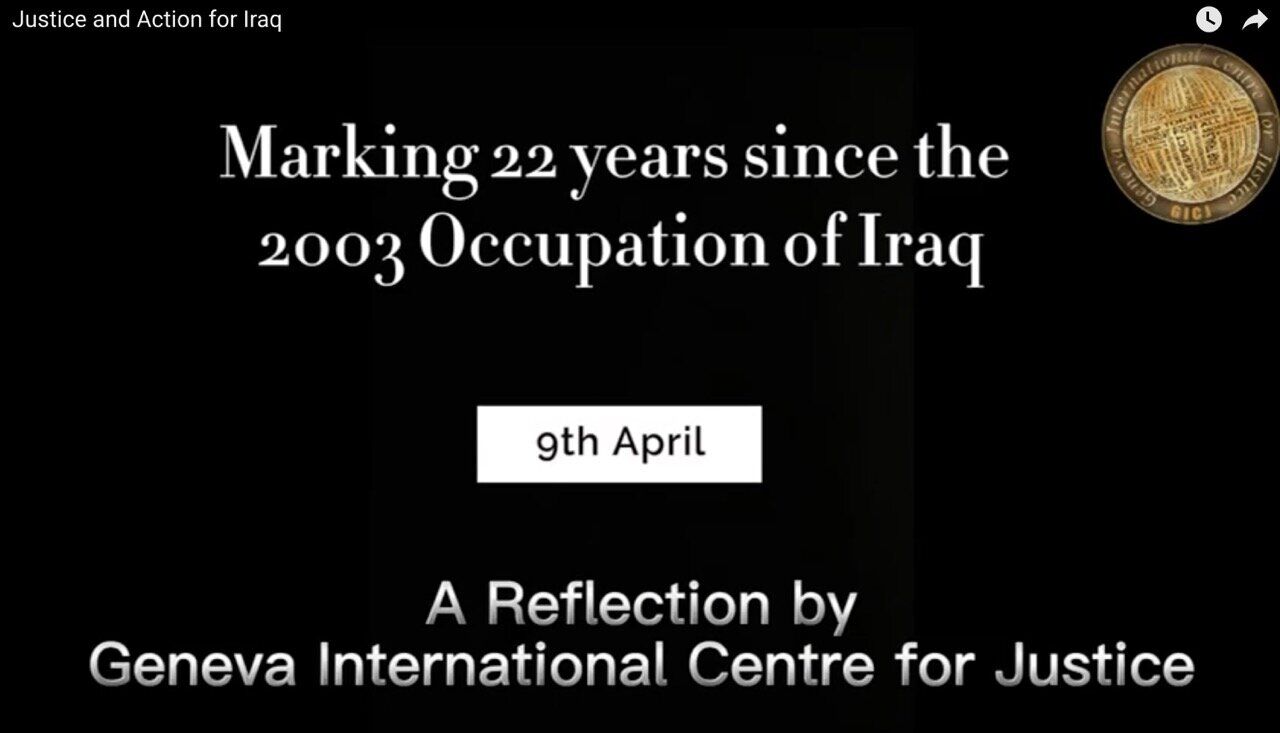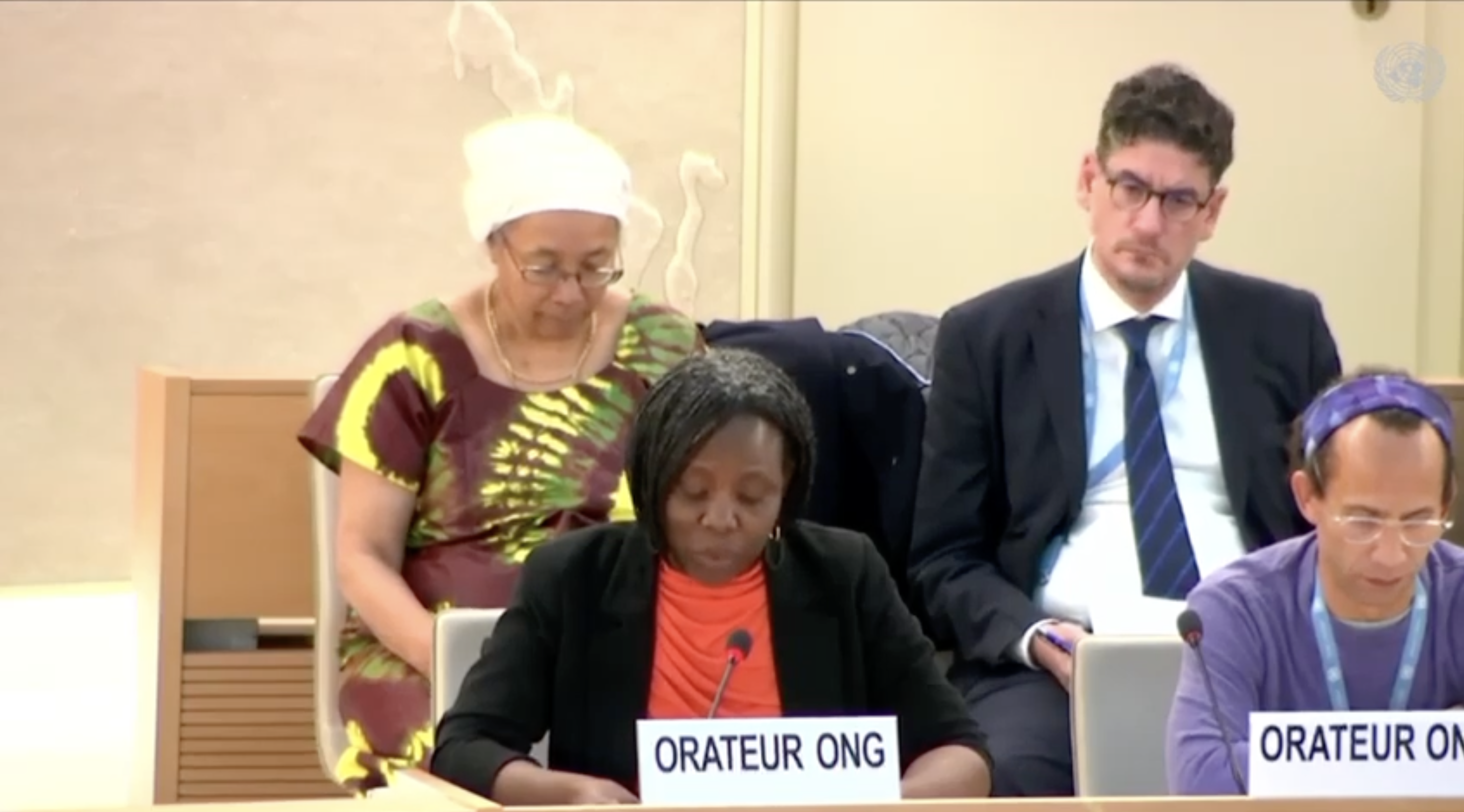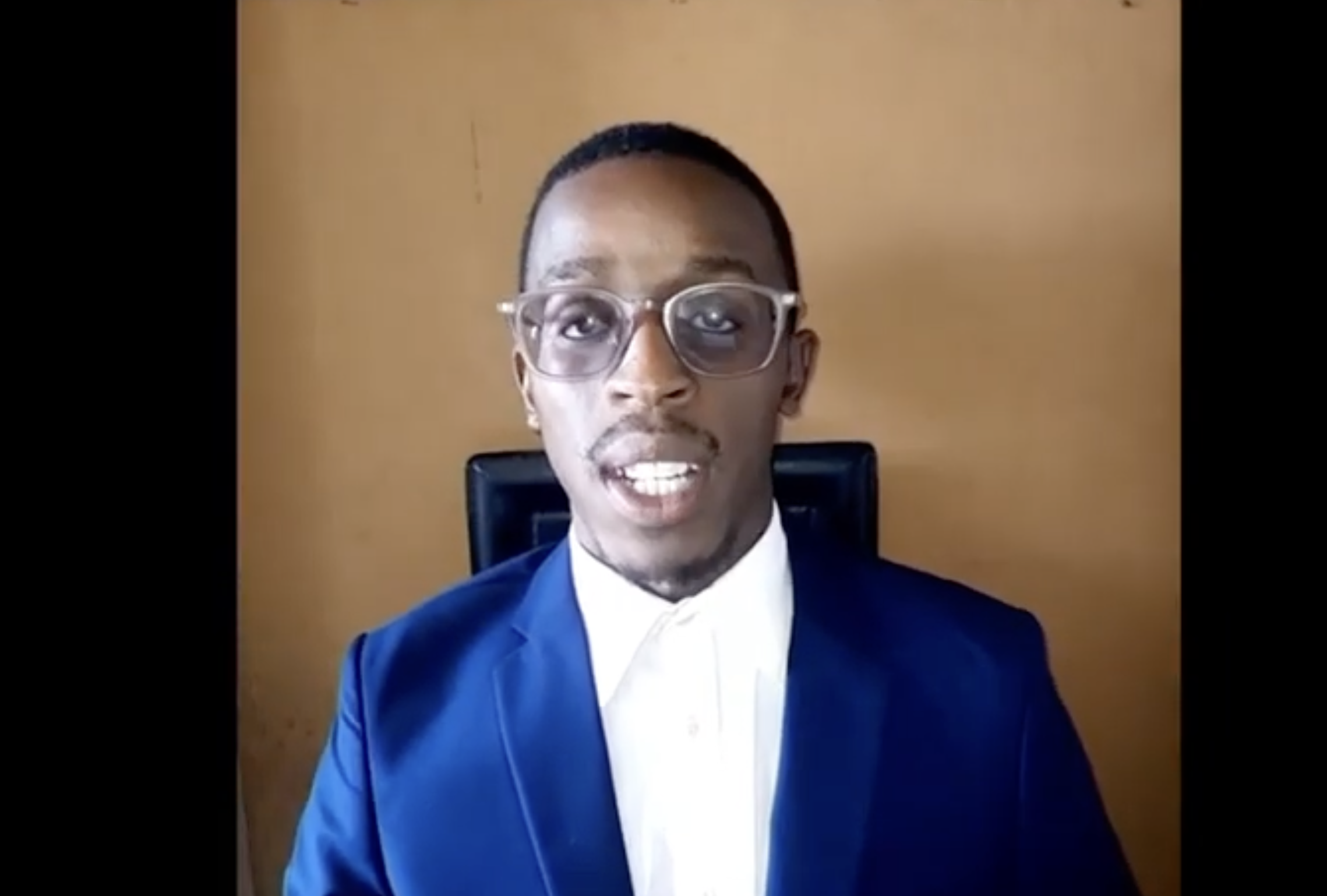The 53rd Session of the Human Rights Council
19th June – 14th July 2023
Agenda Item 3 – Promotion and protection of all human rights, civil, political, economic, social and cultural rights, including the right to development
Interactive Dialogue with the Special Rapporteur on Violence against Women and Girls
22nd June 2023
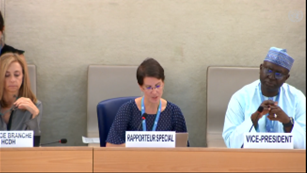
By Noor Sancho/ GICJ
Executive Summary
In 1994, the mandate of the Special Rapporteur on violence against women, its causes and consequences, was endorsed by the Commission on Human Rights. As violence against women continued to impact the lives of women and girls everywhere, the establishment of the mandate, as the first independent human rights mechanism on the elimination of violence against women, represented an important benchmark within the global women’s rights movement. The mandate recognized violence against women as a human rights violation and tasked the Special Rapporteur with ensuring its integration into the United Nations human rights framework and its mechanisms.
At the 53rd Regular Session of the Human Rights Council, Ms. Reem Alsalem, the Special Rapporteur on violence against women, its causes and consequences, presented a thematic report on violence against women and children in the context of custody, with a focus on the abuse of the pseudo-concept “parental alienation”. The report intends to draw attention to a dismissed pseudo-concept still widely used to discredit allegations of domestic violence within family court systems on a global scale. It gives several recommendations to Member States on how to prevent the use of this stereotyped and gendered concept in courts.
Additionally, at the 53rd session of the Human Rights Council, on the 22nd and 23rd of June 2023, the Special Rapporteur on violence against women, its causes and consequences held an interactive on “parental alienation”. The Special Rapporteur pointed out that within the context of child custody cases, violence was perpetrated primarily against mothers. She stated that the most troubling part of the testimonies she had received highlighted a trend of deliberate decisions by courts to allow a child to be returned to an abusive parent, even if there was credible evidence of abuse, simply because contact with that parent was considered more important than any other consideration. Delegations welcomed the report and expressed their concern over the misuse of parental alienation, including double victimisation and removal of custody rights. Many delegations mentioned the critical need to address harmful gender bias and gender stereotyping in legal systems and institutions, which posed a grave impediment to women’s equal access to justice, especially for domestic violence survivors. Civil society organisations thanked the Special Rapporteur for its report, underscoring the widespread and growing use of the pseudo-concept of parental alienation in child custody cases and further drawing the attention of the Special Rapporteur on discriminations faced by transgender women in child custody cases.
Background
The United Nations Commission on Human Rights appointed a Special Rapporteur on violence against women, including its causes and consequences, on 4 March 1994 (resolution 1994/45). Since March 2006, the Special Rapporteur reports to the Human Rights Council, as per Human Rights Council’s decision 1/102. The mandate was most recently renewed in 2022 by resolution 50/7. It is the first independent human rights mechanism on the elimination of violence against women. The mandate recognizes violence against women as a human rights violation and ensures that violence against women is integrated into the United Nations human rights framework and its mechanisms.
In 2019, the Platform of independent expert mechanisms on the elimination of discrimination and violence against women (EDVAW platform), of which the Special Rapporteur is a member, voiced its concern over patterns across various jurisdictions across the world that ignore intimate partner violence against women in child custody cases. Since then, the Special Rapporteur on violence against women and girls has received reports from different countries in which mothers have been penalised for making allegations. In several countries, family courts tend to judge such allegations as deliberate efforts by the mothers to manipulate their child and pull them away from their father. This is often termed “parental alienation.” In its General Recommendation No. 33 of 2015 on women’s access to justice, the Committee on the Elimination of Discrimination Against Women recognized that stereotypes in the judicial system impede access to justice and may particularly affect women and survivors of violence, therefore upholding a culture of impunity.
Report of the Special Rapporteur
The report of the Special Rapporteur on violence against women and girls, its causes and consequences, Ms. Reem Alsalem, addresses violence against women and children in the context of custody, with a focus on the abuse of the pseudo-concept “parental alienation”. A/HRC/53/36
Although there is no commonly accepted clinical or scientific definition of “parental alienation”, this term refers to deliberate or unintentional acts that cause rejection by the child towards one of the parents, usually the father. The pseudo-concept of “parental alienation syndrome” was originally coined by a psychologist. It was then broadly dismissed by psychological associations and even removed in 2020 from the International Classification of Diseases by the World Health Organization. Nevertheless, it is still widely used to discredit allegations of domestic violence within family court systems on a global scale.
According to relevant international and regional standards, the failure to address intimate partner violence and violence against children in custody rights is a violation of the rights of the child and the principle of the best interest of the child. Indeed, Article 12 of the Convention on the Rights of the Child outlines that all State parties must ensure that children who can express their own views have the right to do so freely. In addition, the Group of Experts on Action against Violence against Women and Domestic Violence has highlighted the widespread use of parental alienation as a means of minimising evidence of domestic violence. To date, there is only one State, Spain, where the use of parental alienation is explicitly prohibited by legislation. Furthermore, in its concluding observations, the Committee on the Elimination of Discrimination against Women directed States parties to abolish the use of parental alienation in court cases.
The report elaborates on how the unscientific pseudo-concept of parental alienation may be used by abusers as a tactic and a tool in family law proceedings. It demonstrates that in several countries, family courts tend to judge violence allegations as deliberate efforts by mothers to separate children from their fathers. Mothers who are trying to keep their children safe are often depicted as vengeful and delusional by courts and experts. This reflects a generalised pattern of blaming the mother. Moreover, the distinction between domestic violence and parental alienation is often blurred in family law systems. As a result, allegations of domestic violence are presented as an exception rather than the norm in cases of parental alienation. The consequences of undermining domestic violence in a family and taking biassed custody decisions can be catastrophic. It can lead to the death of children and women, for example, when fathers with a violent history are awarded custody. Therefore, the report demonstrates how the principle of the best interest of the child is violated if child custody is awarded to a perpetrator despite evidence of domestic violence or sexual abuse.
The Special Rapporteur recommends that States legislate to prohibit the use of parental alienation. Furthermore, States should comply with their obligations under international human rights law by establishing monitoring mechanisms to guarantee the effectiveness of family justice systems for victims of domestic abuse. The Special Rapporteur also recommends States to ensure mandatory training of the judiciary on gender bias and on the link between allegations of domestic abuse and parental alienation. In addition, the judiciary should examine each case based on facts and judge fairly, always in the best interest of the child. The report also recommends creating publicly funded systems of experts to provide information to courts. Regarding the child’s representation, the Special Rapporteur recommends States to ensure that children are legally represented separately in all family law proceedings and that the views of the child are independently represented.
Interactive Dialogue with the Special Rapporteur
At the 53rd session of the Human Rights Council, the Special Rapporteur on violence against women, its causes and consequences, held an interactive dialogue under Item 3 of the agenda on the 22nd and 23rd of June 2023.
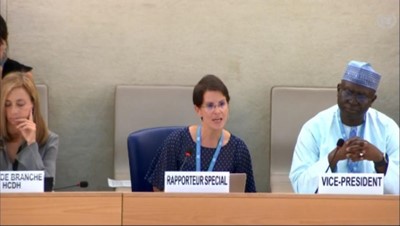 Ms. Reem Alsalem presented her thematic report highlighting the five basic principles of work she has adopted during the two years of her mandate. She stated that she had tried emphasising the intersectional nature of violence against women and girls and addressing the multiple facets and forms of violence. Further, she mentioned she had adopted a balanced geographical approach without singling out any specific region or country. Despite the many obstacles, she completed a visit in Libya to shed light on the alarming situation faced by women and girls in that country, including Libyan nationals and non-nationals alike.
Ms. Reem Alsalem presented her thematic report highlighting the five basic principles of work she has adopted during the two years of her mandate. She stated that she had tried emphasising the intersectional nature of violence against women and girls and addressing the multiple facets and forms of violence. Further, she mentioned she had adopted a balanced geographical approach without singling out any specific region or country. Despite the many obstacles, she completed a visit in Libya to shed light on the alarming situation faced by women and girls in that country, including Libyan nationals and non-nationals alike.
While carrying her mandate, the Special Rapporteur also addressed “emerging issues”, the identification of new arenas where violence arises in an attempt to better understand how they interact and possibly exacerbate violence against women and girls. Moreover, she assisted States and other relevant stakeholders to address seemingly unrelated manifestations of violence against women. In addition, she asked the Council if there are any similarities between women’s inability to protest for their most basic rights because they are women in some countries, including Afghanistan, and women’s inability to articulate their needs based on their biological sex in several other countries around the globe. She recalled that in both contexts, women are censored, face threats to their basic rights of freedom of expression and belief and unprecedented reprisals for speaking out.
She continued, asking the Council to consider what was the impact on a country’s internal efforts to combat violence against women and girls when it steps away from key legal frameworks and treaties on gender equality and women’s rights. She stated that these questions were key elements during her visit to Türkiye. Additionally, she mentioned that within the context of child custody cases, there exists multi-layered violence that has yet to enter the collective conscience of the international community as a human rights issue. One is the violence perpetrated primarily against mothers. The other is the violence perpetrated against children.
Lastly, the Special Rapporteur asked how family courts could be the scene of such egregious forms of violence against mothers and children with total impunity? She added that parental alienation is a continuum of what the mothers are already suffering. Finally, she invited all States to follow the recommendations laid down in the report. These actions include leaving aside unfounded concepts that are misogynistic at their core and revising the Hague Convention on the Civil Aspect of International Child Abduction to deal with cases of women and children fleeing abusive situations in the context of child custody disputes for their safety.
In the ensuing debate, delegations expressed their support of the report. Several delegations stressed the need to train professionals in the judicial system on gender bias and acknowledged the importance of recognizing parental alienation as an extension of domestic violence. A/HRC/53/36
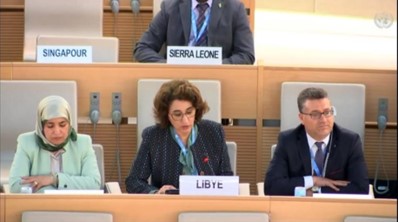
Libya reaffirmed at the outset its commitment to strengthening women’s rights and recalled that since its independence, women can more effectively participate in public life. The country firmly stated that Libyan law guarantees quotas to ensure that women hold posts in the judiciary, the legislature, and the executive. Moreover, Libya regretted the way the visit of the Special Rapporteur had taken place and the stereotypes and prejudices contained within the report. The country further rejected the report as non-representative of the reality and condemned claims within it alleging that non-Libyan women suffer systematic discrimination due to social traditions.
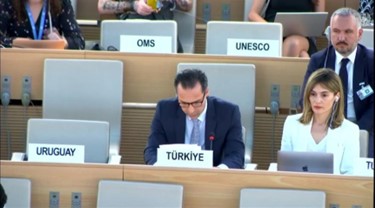 Türkiye thanked the Special Rapporteur for her visit. The country reaffirmed that since the visit, the country launched in 2023 an Operation Plan to combat violence against women with particular focus on access to justice and legislation, protective and preventive services and social awareness.
Türkiye thanked the Special Rapporteur for her visit. The country reaffirmed that since the visit, the country launched in 2023 an Operation Plan to combat violence against women with particular focus on access to justice and legislation, protective and preventive services and social awareness.
Norway on behalf of the Nordic Baltic countries thanked the Special Rapporteur for highlighting the concern about the pattern of ignoring intimate partner violence against women in determining child custody cases. The group expressed its concern that there are cases where protection systems fail in their duty to protect children and women, and children are compelled to return to abusive and life-threatening situations. Furthermore, the Nordic Baltic group of countries reaffirmed that the principle of the best interest of the child must be fully respected, and allegations of domestic violence must be properly investigated.
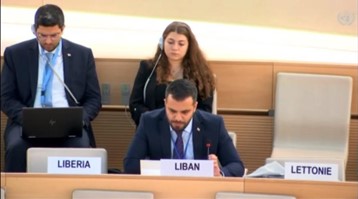 Lebanon on behalf of the Arab group stressed the essential role of women in society and the importance of providing healthcare, psychological and social support, and legal assistance to help victims to reintegrate society and access justice. The group reiterated the need to adopt an approach that considers the family as part of the solution and to motivate men to play a positive role in this regard.
Lebanon on behalf of the Arab group stressed the essential role of women in society and the importance of providing healthcare, psychological and social support, and legal assistance to help victims to reintegrate society and access justice. The group reiterated the need to adopt an approach that considers the family as part of the solution and to motivate men to play a positive role in this regard.
Ecuador shared the concern of the Special Rapporteur that reports of domestic violence are ignored and discredited with the invocation of parental alienation. The delegate pointed out that women in minority groups are disproportionately affected and expressed deep concern over the fact that opinions of minors are not considered in judicial rulings.
The United States of America shared the Special Rapporteur’s deep concern regarding the alarming and persistent gender-based violence globally, including rape and other forms of sexual violence. The country added that according to UN Women, fewer than 40% of the women who experience violence seek help, and those who do often turn to family and friends rather than formal institutions.
Sudan noted that at the time when this session was being held, women and girls in Sudan were being subjected to violence and heinous crimes. The delegate recalled that women and girls are victims of rape and humiliation and added that the militias document these horrendous crimes and publish them on social media. Furthermore, Sudan mentioned that many cases of abduction targeting young girls had been reported.
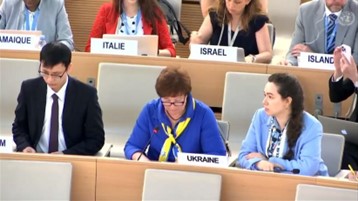
Ukraine reiterated that despite the military aggression of Russia and the temporary occupation of its territories that compounded the situation of women in the country, it ensured women and children's rights are among the country’s priorities. In addition, the representative of Ukraine recalled that last year, the country ratified the Istanbul Convention.
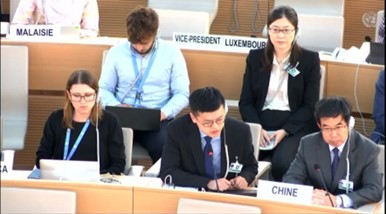 China recalled that the people's courts at all levels in China rule in accordance with the law and mentioned that in 2023 the newly revised Law on the Protection of Women's Rights and Interests came into effect. The delegate pointed out that the United States of America's Supreme Court decision to overturn abortion rights is a major retrogression and urged the United States of America to ratify without delay the Convention on the Elimination of All Forms of Discrimination Against Women (CEDAW) and demonstrate political will. Further, China asked the Special Rapporteur how to protect the rights and interests of women from ethnic minority groups, in some Western countries, from violations in a climate of rising racism.
China recalled that the people's courts at all levels in China rule in accordance with the law and mentioned that in 2023 the newly revised Law on the Protection of Women's Rights and Interests came into effect. The delegate pointed out that the United States of America's Supreme Court decision to overturn abortion rights is a major retrogression and urged the United States of America to ratify without delay the Convention on the Elimination of All Forms of Discrimination Against Women (CEDAW) and demonstrate political will. Further, China asked the Special Rapporteur how to protect the rights and interests of women from ethnic minority groups, in some Western countries, from violations in a climate of rising racism.
Afghanistan recalled that since the unlawful takeover of Afghanistan, women and girls continue to remain at an ever-increasing risk of violence. The country noted that systematic discrimination against women and girls, a core element of the Taliban’s form of rule, has normalised gender-based violence. Moreover, Afghanistan pointed out that the restrictive environment women face outside the home has multiplied in instances of domestic violence. Finally, the country noted that women and girls who are tame to fully abusive domestic situations are more severely impacted by the Taliban's oppressive policies as they are forced to return to violent abusers.
France reiterated that the elimination of all forms of violence including sexual and gender-based violence whether they be online or offline is a major struggle which France is waging both at home and abroad. Likewise, the country called upon all States to ratify the Istanbul Convention of the Council of Europe and to join in the coalition of action to combat gender-based violence of the Generation Equality Forum which will have its midterm event on the 17th and 18th of September in New York.
Civil society organisations congratulated the Special Rapporteur on her report on the issue of child custody and its nexus with violence against women and children. Several NGOs raised concerns over the widespread and growing use of the pseudo-concept of parental alienation in child custody cases. One NGO regretted that Türkiye had illegally withdrawn from the Istanbul Convention. Another NGO highlighted that the report fails to address numerous legal socio-economic challenges experienced by transgendered and gender diverse parents and their children, based on transphobic biases. Furthermore, the NGO drew the attention of the Council to the fact that their transition can be used as an argument against their ability to exercise motherhood. Lastly, concerns were raised regarding Bahrain’s lack of seriousness in effectively eradicating violence against women, and its failure to criminalise offenders.
After interventions from Member States, National Human Rights Institutions and Civil Society Organisations, Ms. Reem Alsalem answered several delegations that had raised concerns over the use of parental alienation against fathers. She stated that parental alienation is sometimes misused against fathers. Nevertheless, she recalled that it is predominantly invoked against mothers as a tool during child custody procedures to divert attention from the history of domestic violence or abuse against the mother and the child. She added that most intimate partner violence is male violence in its most predominant form. She reiterated that parental alienation is part of a continuum of coercive control being levied in a particular context from one partner to another and must be seen in the context of the wider dynamics of a family.
Ms. Reem Alsalem made her final remarks recommending States to implement article 31 of the Istanbul Convention robustly, which requires judges to take into consideration any known incident of domestic violence when they decide on custody or visitation rights. Further, she encouraged States to carry out independent inquiries on the phenomenon of parental alienation and obtain disaggregated data. Lastly, she also recommended the criminalisation of coercive control as it has been done in Australia and the United Kingdom.
Position of Geneva International Centre for Justice
Geneva International Centre for Justice (GICJ) welcomes the report of the Special Rapporteur on parental alienation for shedding light on this highly gendered phenomenon frequently instrumentalized against mothers. GICJ remains committed to preventing widespread and growing gender-based violence and calls upon the international community to take effective measures to combat gender bias and stereotypes within the judiciary.
In that regard, GICJ urges all Member States to ratify the Istanbul Convention of the Council of Europe and the Convention on the Elimination of All Forms of Discrimination Against Women (CEDAW). Moreover, State Parties should implement article 31 of the Istanbul Convention, which requires judges to take into consideration any known incident of domestic violence when deciding on custody or visitation rights.
GICJ remains committed to put an end to impunity that women face when losing custody of their children. In that regard, GICJ recommends States to revise the Hague Convention on the Civil Aspect of International Child Abduction to ensure that, never again, child custody will be awarded to a perpetrator.
HRC53, Women_and_girls, HumanRightsViolations, Special_Rapporteur, High_Commissioner, Justice, Human_Rights, Women’sRights, Geneva, Geneva4justice, GICJ Geneva_International_Centre_for_Justice, Human_Rights_Council, HRC53th, Regular_Session, Justice, Human_Rights, Geneva, Geneva4justice, GICJ, Geneva_International_Centre_for_Justice




